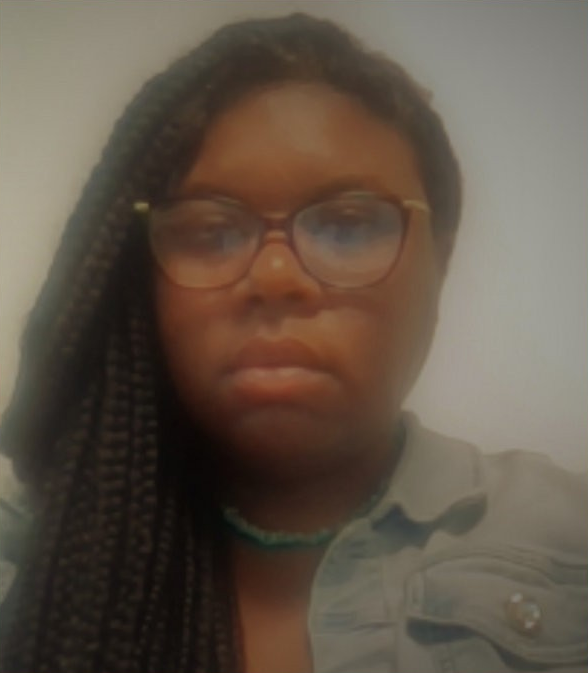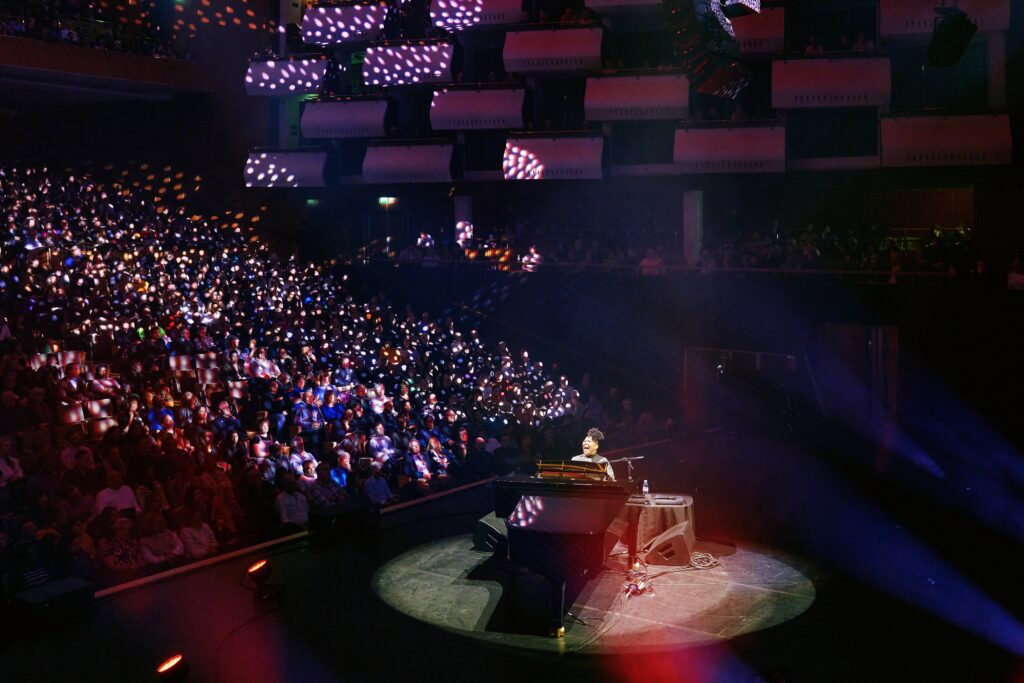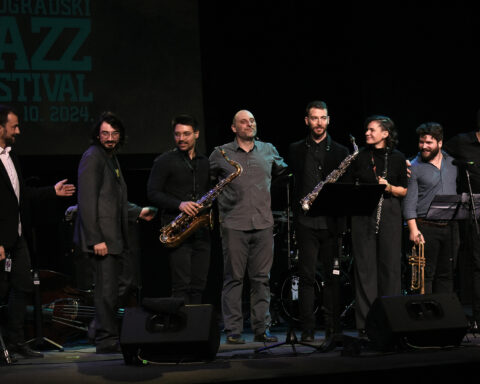I found myself in London, England after many years of desiring a return after spending time there on tour as a musician during the first Trump election (it is quite possible I am subconsciously deterred from election drama).
COVID-19 and the unfortunate loss of my passport in 2021 had posted in the States, feeling a bit listless as many of my friends did not tour and travel through my hometown of Baltimore. Even compared to New York City — saturated with the most brilliant jazz performances and home to many of of my favorite artists — London has seemed to attract most of them in the course of a month, more than I’ve seen in the States have in some time.\
At the very least, the London leg of their tours seemed more convenient and less stressful to attend.
Since mid-October I have seen and been invited to:
- Sweet Honey in the Rock at Barbican in London (read my feature for SFJAZZ here. A little background: I received the assignment remotely, and was on the road traveling while Sweet Honey was as well. Carol Lynn Maillard and I were able to speak briefly after the show in London, and I interviewed her for a feature article via some a week later);
- Luke Stewart with the Dave Murray Quartet at Ronnie Scott’s;
- Moor Mother solo for Pitchfork Music Festival London at Fabric;
- Robert Glasper at KOKO (upcoming), and
- read my preview for the EFG London Jazz Festival in New York Amsterdam News here.
Dizzying and gleeful for a music journalist who has followed bands all over the United States for over a decade.
For November, I am in the midst of covering the EFG London Jazz Festival,
Cambridge Jazz Festival and again, I inadvertently attended Pitchfork Music Festival London.
How that happened: Camae Ayewa, also known as Moor Mother, best known in the jazz world for being lead vocals (spoken word) for the force-of-nature free jazz ensemble Irreversible Entanglements, sent a brief yet kind direct message over X/Twitter. She and I met at Pratt Institute almost 10 years ago, just beginning our scholarly and Internationally revered careers. She mentioned she would be in London for a show a couple of weeks from our online chat, and I followed up requesting I be added to her guest-list with a plus-one.
When I went to send the location and event information to the plus-one, I noticed the event was a part of Pitchfork Music Festival London. The interesting thing is that the last time I saw Moor Mother was at the American Pitchfork Music Festival in Chicago in 2018. I’ve run into her, Luke Stewart (of IE) and others all over the world, so one piece of advice is that before you begin following the festival circuit, understand that the jazz community is a family. Make an effort to show up over the course of many years, and festival invites and assignments will fall into place over time.
I believe there is a level of naivety if not serendipity to the process of covering jazz festivals. It is very helpful to come in with experience and in-set connections. You can stand on those attributes and the reputation of your publication and trust in the influence of your editor to reach out and solidify your press credentials, but it is best to do your research and reach out to publicists and managers yourself.
For example: I know Brandee Younger, and am familiar with Andrew Bird’s publicist and have access to all of the Women in Jazz Media Jazz Fest events, but for artists such as Charles Tolliver and Jamie Cullum I had to ask my editor for support to solidify a space on theur lists. All he did was send me their contact information. To an emerging writer, I would advise that — with humility — you request your editor to reach out and cc you so publicists, managers, venues and festival organizers understand your legitimacy, But being a seasoned, widely published journalist, that’s all become up to me.
You can find artist’s contact information via web searches on their professional websites contact page. Their managers or publicity firms will have posted profiles of their clients, and you can frequently contact them through the information provided by those sites.
For big-name artists like Jamie Cullum, it’s best to have established a little background with them. For instance, he tweeted a year or so ago asking what his followers’ favorite standards were. I tweeted (I rarely reply, but I thought it was a good question) “Once Upon a Summertime”. He liked the tweet, so it (along with my years of experience and the influence of my publications) subconsciously makes me believe I have a chance at attaining access. It seems silly, as I don’t equate social media with deeply tangible connection, but every little bit helps when you are working to complete an endeavor such as covering a sprawling jazz festival in a country where you’re not a native.
Essentially there are two ways to come to cover international jazz festivals, through adjacency and happenstance, or acute planning, timing and preparation. Both scenarios require at least two weeks of preparation which consists of —
- Pitching editors and receiving the greenlight to cover the festival,
- Choosing the shows you would like to attend and write about,
- Locking in press credentials/press passes or guest list spots,
- Making sure you write at least one preview in the midst of the preparation
You might even open the door for regular international jazz correspondence work, which is rare in jazz journalism, but a few writers have achieved it.
I shouldn’t make this process look easy.
I think it is easy to become overwhelmed, specifically with London Jazz Festival and festivals of its size (10 days long, 150 events at least), so I reiterate my belief in a level of journalistic hunger and light naivety (so that your creativity is not sullied by the stress of competition or the fear of rejection) are elements of success in querying and getting assignments.
Furthermore, be clear about your goals and circumstances.
- Are you available to cover the entire festival?
- Are you in the city, close to the center of most of the events?
- Have you choosen the events you’d like to cover?
- Can you provide as much information as you have about your contacts? Do your due diligence and have some events solidified before approaching your editor, if you’re able.
- Let your editor know why you’re interested, and a bit of how you’d like to cover the events. A mix of previews, live reviews, interviews?
Be confident, organized and prepared. I’ve been prepping for about 10 days with seven shows locked in. My editor would like me to cover more. Respect your editor’s request. If you say you want to cover a huge event, be ready to do it, not just talk about it. Today, I will sit down and choose five to 10 more shows to cover.
It’s not easy, but if you engage in two to four weeks or longer of prep time, you will feel much more comfortable and confident about taking on this opportunity.
Don’t do it for the money! London is a new era in my personal jazz journalism story. Your writing is about the work, your journey, your knowledge and enjoyment of the music. Yes, I am getting paid, but not as much as you think. I happened to be in town. Writing comes most naturally. The jazz community has been kind since I arrived. The timing was right for me to cover such an amazing festival.
Timing, preparation, research, organization, communication, attending each event and filing your articles on time are the keys to success. You can do it! Good luck.







